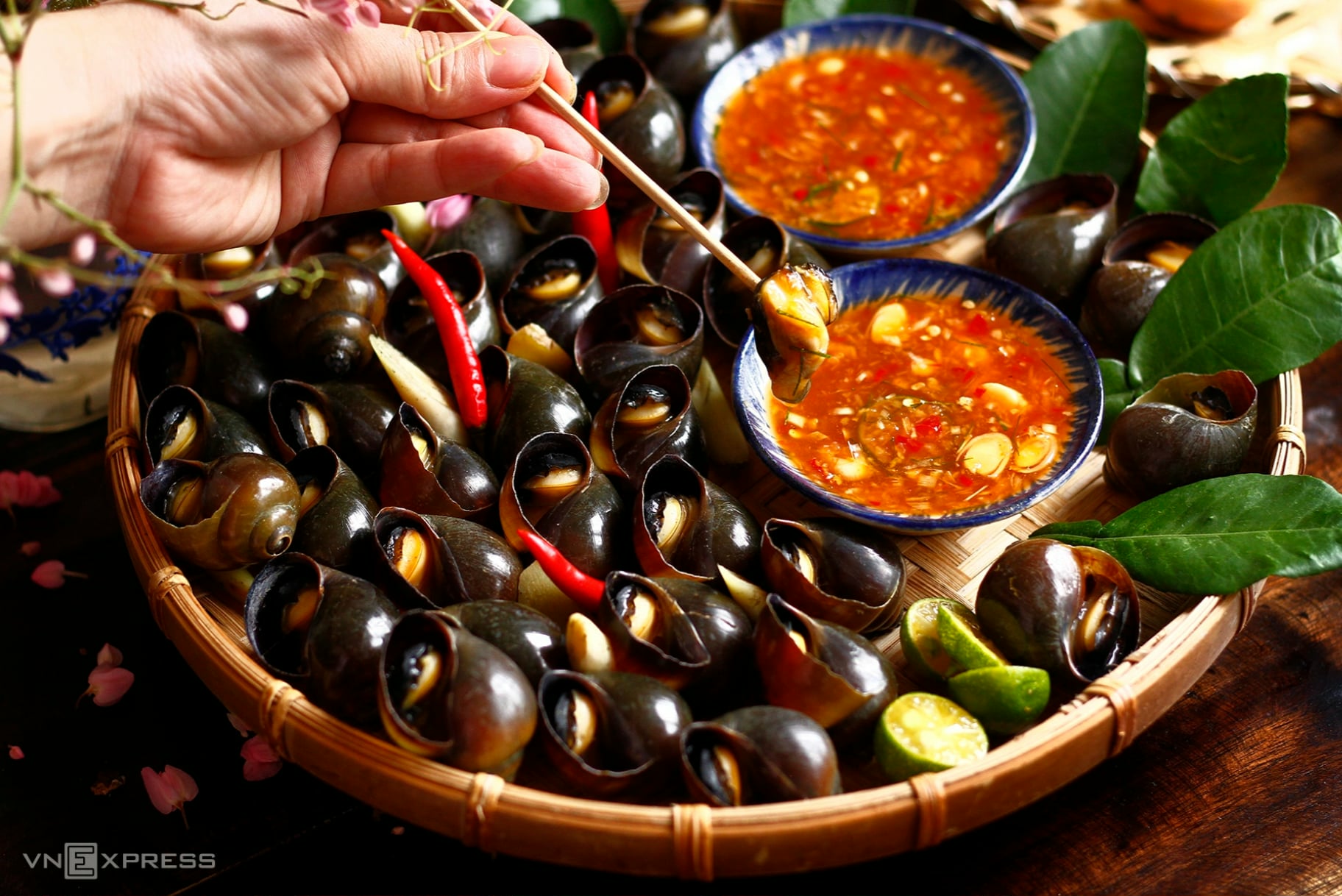According to the National Institute of Nutrition (2021), Vietnamese people consume an average of 9.4 g of salt per day – nearly double the World Health Organization's (WHO) recommended intake of less than 5 g per day (about 1 teaspoon). Notably, 70% of this salt intake comes from seasoning and dipping sauces during cooking, not just from processed foods.
Dr. Ngo Thi Kim Oanh, from the University of Medicine and Pharmacy Hospital in Ho Chi Minh City - Facility 3, observes that a preference for rich flavors, heavy seasoning, and salty dips is a common feature of Vietnamese meals. From dried fish, fermented sauces, and pickled vegetables to the ubiquitous dipping sauce, a "salty mouth" has become a cultural norm.
Dr. Oanh explains that this cultural preference stems partly from food preservation practices. In the past, Vietnamese people lived in a hot and humid climate, lacking refrigerators and other preservation methods. To keep food longer, they would salt and dry fish, ferment sauces, and pickle vegetables. Gradually, consuming salty and dried foods became not only a way to prevent spoilage but also a familiar taste.
Additionally, during times of hardship and famine, a meal with just dried fish, fermented sauce, or pickled vegetables was enough to make rice palatable. Eating salty food helped conserve ingredients while maintaining a sense of satisfaction. This eating habit has been passed down through generations and persists today.
Regional cultures also influence eating habits. Northern Vietnam tends to favor salty flavors for richness, while Central Vietnam, with its harsh climate, is known for its characteristic spicy-salty cuisine. Southern Vietnam prefers sweetness but also embraces a variety of fermented sauces. This demonstrates how the preference for salt is deeply intertwined with regional culinary traditions.
Meanwhile, Dr. Phan Thai Tan, a nutrition and weight loss expert, notes that in the past, most Vietnamese people worked in agriculture, toiling outdoors and sweating profusely. Their bodies craved salt to replenish what was lost through perspiration.
Today, this eating habit remains, with fish sauce or dipping sauces almost indispensable. Even when dishes are already seasoned, many people add more sauce or dip, significantly increasing their salt intake.
Industrial seasonings like MSG, refined salt, and industrial fish and soy sauces create intense flavors that stimulate the palate but can be addictive. Instant noodles, sausages, and packaged foods, laden with salt, MSG, sugar, and refined oils, raise the threshold for saltiness, making bland food unappetizing.
Vietnamese children often eat with adults, exposed early on to salty food. Over time, their taste buds adapt to high salt levels. As adults, eating less salt can feel unpleasant and unsatisfying.
Furthermore, Vietnamese culture values thoughtfulness. In family meals, the cook is often praised for dishes that are "just right" and flavorful. Bland food can be perceived as lacking finesse. Therefore, many home cooks add extra salt, fish sauce, or seasoning powder to ensure the food isn't bland.
 |
Fish sauce or dipping sauces are almost indispensable in Vietnamese cuisine. Photo illustration: Bui Thuy |
Health consequences of a "salty mouth"
According to Dr. Oanh, excessive salt intake increases water retention, putting pressure on blood vessel walls and leading to high blood pressure – a primary cause of stroke and heart attack. Salt overworks the kidneys, which must excrete excess sodium, eventually causing kidney damage and kidney stones.
Studies show that prolonged high salt consumption damages the stomach lining, increasing the risk of Helicobacter pylori infection – a major cause of stomach cancer. High salt intake also causes water retention, leading to bloating and swelling in the face and legs.
Dr. Tan points out that a high-salt diet increases the risk of osteoporosis because salt promotes calcium excretion. In children, excessive salt intake can lead to taste bud dependence and unhealthy lifelong eating habits.
How to gradually reduce salt intake?
The Ministry of Health has launched a National Nutrition Strategy to 2030, which aims to reduce salt consumption by 30%. Public awareness campaigns like "Eat Less Salt to Prevent Hypertension and Stroke" have been implemented nationwide. However, changing cultural eating habits is a long-term process requiring perseverance from every family.
Many worry that reducing salt will make food bland, but there are ways to adjust taste preferences gradually while maintaining flavor. Nutrition experts emphasize that overusing industrial seasonings not only leads to salt addiction but also disrupts gut microbiota, taste buds, and hormones.
Here are the core principles and practical steps to effectively reduce salt intake.
Core principles:
Restore taste buds with natural seasonings and completely avoid industrial products. These lack balanced micronutrients for salty, sweet, and savory tastes, confusing the body's "enough" signals and leading to overeating. Additives also harm gut microbiota and cause addiction.
Excessive salt becomes harmful when it accumulates beyond the kidneys' filtering capacity. After a salty meal, drink plenty of water and exercise to sweat instead of remaining sedentary. For instance, avoid eating salted fruit immediately after a main meal.
Reduce salt intake gradually, not abruptly; taste buds need 4–6 weeks to adapt. Decrease salt usage slightly each week to allow your palate to adjust.
Practical steps:
Replace industrial seasonings with natural ones: Substitute refined salt with coarse sea salt, pink salt, bamboo salt, or rock salt; refined sugar with unrefined sugar; and MSG, seasoning powder, industrial fish sauce, and soy sauce with natural umami sources (like mushrooms and seaweed).
Dilute dipping sauces with lemon, garlic, chili, and water to retain flavor while reducing sodium.
Reduce salt during cooking. Use herbs, garlic, ginger, pepper, lemon, and other natural seasonings to enhance flavor without excessive salt.
Limit processed foods. If using them, choose "low sodium" options.
Consume plenty of potassium-rich vegetables and fresh fruits to balance sodium and protect the heart and kidneys. Reduce intake of pickled and salty foods.
Practice mindful eating: Eat slowly and chew thoroughly to savor the natural sweetness of food, realizing that salt isn't necessary for enjoyment.
My Y












